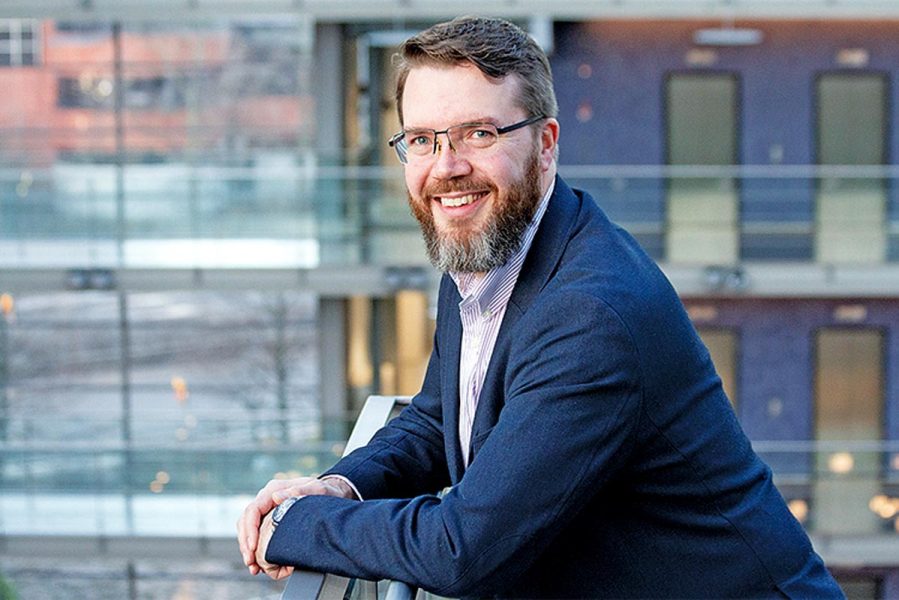Finnish providers of sustainable manufacturing solutions can support Serbian manufacturers in increasing both their productivity and efficiency, while also accelerating the green transition
Finland is among the world’s most digitally advanced countries, while connectivity and data utilisation are among the key value adding characteristics of Finnish solutions. Here Toni Mattila, head of Sustainable Manufacturing at Business Finland, the country’s national innovation funding and trade promotion agency, shares his views.
What are the current trends of the manufacturing sector, both in Europe and globally?
– Over recent years, many global challenges have confronted manufacturing industries. Included among them are the COVID-19 pandemic, the blocking of the Suez Canal, natural disasters like floods, wildfires and droughts caused by climate change, but also the war in Ukraine, all of which have shed light on the vulnerability of supply chains, while at the same time creating a need for greener and more energy efficient solutions.
One of the key takeaways of these crises is that we need to develop more resilient supply systems, especially in Europe, and to make sure that all European countries participate in the re-rationalisation of supply chains. Although some parts are still manufactured more efficiently elsewhere, companies should critically evaluate the extent to which the production of critical parts should be relocated closer in order to improve resilience, and redundancy sourcing developed for them. Globalisation has undoubtedly brought many benefits, but it has also rendered supply chains vulnerable. We need to be better prepared to face similar future challenges and shocks.
What can Serbia’s manufacturing sector learn from its Finnish counterpart?
– As is the case for Serbia, Finland’s manufacturing sector is also very important for its national economy. A third of Finland’s GDP and 50% of its exports currently come from manufacturing industries. Finnish manufacturing industries encompass products in a wide range of sizes and include everything from highly miniaturised wearable electronics all the way to large cruise ships. And between these extremes lies a very important sector of manufacturing for Finland, namely mobile work machines. Finland hosts a few dozen manufacturers of mobile work machines in farming, forestry, port logistics and mining, to name just a few examples. Due to their dependency on foreign markets, Finnish manufacturers have been tackling the challenge of international competitiveness for decades and have thus been pressured into finding ways to maintain their competitiveness. Particular challenges for Finland include the fact that it is a high labour-cost environment and a geographically isolated country.
Finland currently ranks as the European Union’s most digitally advanced country, according to the EU’s Digital Economy and Society Index. Digitisation is therefore also a distinct feature of Finnish manufacturing. Many Finnish smart manufacturing solutions have been founded on connectivity, meaning that manufacturing equipment and devices are connected and often remotely operable. Data from the manufacturing process is thereby constantly available to be utilised for the benefit of manufacturing and industrial processes.

The mobile work machines sector, for example, is characterised by medium volumes and high levels of customer specific tailoring. Challenges related to such manufacturing have led to the creation of a specific group of highly advanced solution providers that are capable of providing productivity improvement solutions particularly to such ‘high mix, low volume’ manufacturing. The Serbian manufacturing industry might face similar challenges of international competitiveness and productivity in the future, and therefore closer collaboration with Finnish manufacturing industries could provide mutual opportunities.
One of the key takeaways of these crises is that we need to develop more resilient supply systems, especially in Europe, and to make sure that all European countries participate in the re-rationalisation of supply chains
Finnish manufacturers are today increasingly developing a further competitive advantage from the green transition. Challenges related to environmental sustainability and the green transition of manufacturing industries are shared by all industries globally and, thus, close collaboration on this front provides additional opportunities for collaboration between Serbian and Finnish manufacturing industries.
Alongside manufacturing, the food industry is also growing in Serbia. Could Serbia also take advantage of some lessons learnt from the Finnish food industry?
– Finland is known for its pure and high-quality food production. This is derived equally from pure nature and strict legislation of food sanitary and safety regulations in Finland. One outcome of this is highly developed solutions in cold chain assurance to make sure food products remain fresh throughout the logistics chain, all the way to the consumers. Representing part of this are technologies to monitor temperatures across the entire logistics chain. Another aspect is to scan and monitor food production processes to make sure that food does not include unwanted ingredients, substances or particles.
Which Finnish solutions could benefit companies in Serbia?
– As noted above, Finnish manufacturing industries have tackled productivity challenges in the environment that is specific to Finland and those same companies are today working actively to find ways to improve their environmental friendliness and create business value from it. This ‘tackling of challenges’ has produced many solutions that are today available commercially.
Energy efficiency, which is a very topical and acute challenge for European industries in particular, is a concrete theme for collaboration. Finland’s cold climate, especially during the winters, has compelled Finnish companies to find innovative solutions around energy efficiency. For example, industrial processes that produce large amounts of waste heat (such as steel mills or data centres) have developed methods to recover that excess heat and sell it to heating companies, which in turn use it to heat homes and other facilities. Energy efficiency has developed into a business sector in its own right, where there are multiple companies with core expertise in finding energy efficiencies and thereby also saving on the costs of their clients’ industrial operations. Another excellent opportunity is industrial digitisation. For example, industrial digital twins and business value from data.
Some specific examples of Finnish solutions that could support the manufacturing sector in Serbia include: Granlund, which specialises in improving productivity to promote digitisation and new energy solutions for various industries; Wapice, which digitises clients’ business processes from the beginning to the end of the production chain; KPA Unicon, which provides boiler and heat recovery solutions; and Verderon, which uses multiple data sources to calculate environmental impact on a daily basis.
By working closely with the Embassy of Finland in Belgrade, we, at Business Finland, are looking forward to discussing more with Serbian industry, and to supporting the joint European approach to creating more efficient and environmentally sustainable manufacturing value chains.
